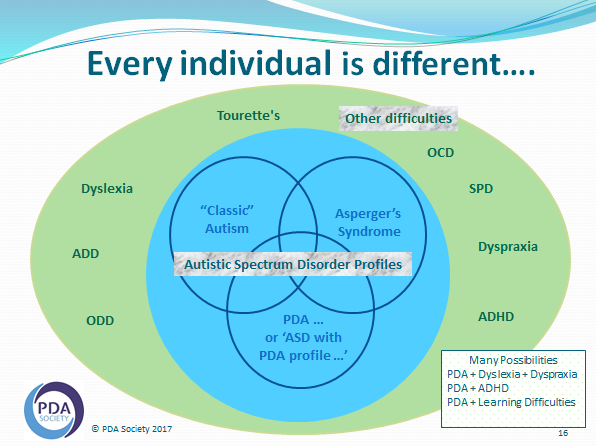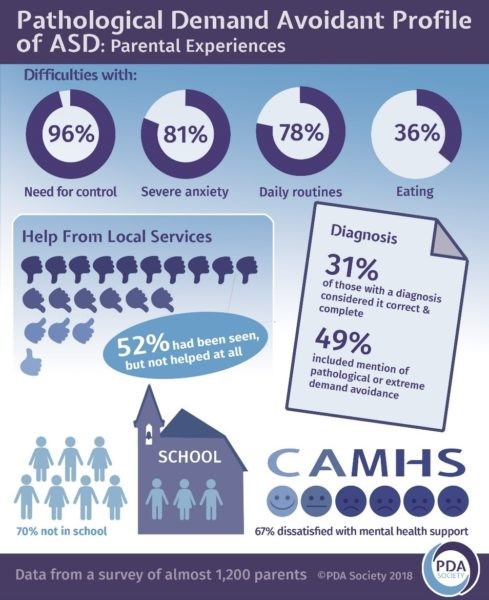Pathological Demand Avoidance In Kids: What It Is And How You Can Address It?
19th June 2023

Kids all across the globe often avoid doing things they are asked to do. However, others go above and beyond just to try and avoid such requests. This pattern of ignorance or resistance is called Pathological Demand Avoidance and is often mostly seen in people with autism. People around individuals diagnosed with PDA often find it tricky to provide support and manage the condition. Thus, it is highly recommended to gather knowledge from certain Autism courses online to figure out the challenges and be aware of the situation.
Keep reading on to explore the characteristics and impact of PDA and how to support people who are diagnosed with this condition.
What Is Pathological Demand Avoidance?
Pathological Demand Avoidance (PDA) is a subtype of autism spectrum disorder (ASD) characterized by an extreme avoidance of everyday demands and an overwhelming need for control. First identified by Elizabeth Newson in 2003, PDA is now recognized as a distinct profile within the autism spectrum. Individuals with PDA often exhibit unique behavioral patterns that differentiate them from other individuals with ASD.

Even if the symptoms are mostly associated with autism researchers have suggested that non-autistic people can also experience PDA. It can cause functional difficulties and proponents of neurodiversity-affirming movement tend to concern many. Since this condition manifests as ignoring or avoiding requests it often presents individuals as being rebellious and can be misidentified as oppositionality or defiance.
Signs of Pathological Demand Avoidance
Some of the most common traits associated with PDA include:
- Avoidance Of Demands
People with PDAs consistently try to evade and resist demands, often going to great lengths to manipulate situations or people to avoid tasks or requests. They may engage in social manipulation, such as creating distractions or using negotiation tactics to escape demands.
- Anxiety And Control Issues
Individuals with PDA may experience high levels of anxiety, particularly when faced with demands or when their need for control is threatened. They often feel overwhelmed by ordinary expectations and may respond with extreme resistance or even aggression.
- Social Interaction Difficulties
People with PDA may have difficulties with social interaction and social imagination, which are core features of ASD. They might struggle with interpreting non-verbal cues, understanding social norms, and maintaining reciprocal relationships.
- Highly Variable Behaviors
Unlike individuals with more traditional forms of ASD, those with PDA may exhibit highly variable behaviors and responses across different situations. They can switch between compliance, defiance, and avoidance rapidly, making it challenging for others to predict or manage their behavior.
- Obsessive Behavior And Intense Interests
Individuals with PDA may develop intense and obsessive interests that can change over time. These interests often serve as a coping mechanism and a way to exert control over their environment.
The Impact of Pathological Demand Avoidance:
Living with PDA can have a significant impact on individuals and their families.
Some common challenges include:
- Educational difficulties
The avoidance of demands can make it challenging for individuals with PDA to engage in structured learning environments. Traditional teaching methods may be ineffective, requiring alternative approaches that accommodate their unique needs.
- Emotional And Mental Health Issues
The constant need for control and the anxiety associated with demands can contribute to high levels of stress, frustration, and emotional instability. Mental health conditions such as anxiety, depression, and emotional regulation difficulties are commonly observed in individuals with PDA.
- Relationship Strain
The distinctive behavioral patterns of PDA, including resistance and manipulation, can strain relationships with family members, peers, and educators. These difficulties can lead to isolation and social exclusion.
- Occupational Limitations
As individuals with PDA struggle with following instructions and adapting to new situations, they may face challenges in the workplace. Difficulties in managing demands and interacting with colleagues can impact their career prospects and opportunities for independent living.
Supporting Someone with Pathological Demand Avoidance

Supporting someone with PDA involves a multifaceted approach that combines understanding, patience, and specialized techniques to suppress an individual's need for control and reduces demands.
Strategies that can be helpful include:
- Negotiation And Collaboration
Engaging individuals with PDA in discussions, providing choices, and involving them in decision-making can help alleviate anxiety and promote cooperation.
- Reducing Demands
Breaking tasks into smaller, manageable steps and gradually introducing demands can help individuals with PDA feel more in control and reduce avoidance behaviors.
- Alternative Communication Methods
Some individuals with PDA may struggle with verbal communication, but they may excel in other forms of expression. Using visual aids, social stories, or assistive technology can facilitate effective communication.
- Flexibility And Understanding
Recognizing that the avoidance of demands is not intentional defiance but a response to anxiety is crucial. Being flexible and understanding can create a supportive environment where individuals feel safe and secure.
- Consistency Is The Key
If you are working with individuals concerning PDA you need to be consistent, decide on the non-negotiables, and also explain the reasons for why you are doing what you are doing and make efforts to stick to it. Consistency will make the world predictable for children with this behavioral condition and make their surroundings less confusing.
Comprehend Instead Of Getting Annoyed
Pathological Demand Avoidance is a profile associated with ADHD and Autism and even though it’s a challenge it is possible to manage everything healthily. For starters, you can upskill and reskill yourself by undergoing a PG Diploma in Autism course to understand the condition better and determine whether it can be solved at home or if your loved ones need a health practitioner for therapy.
Find the right course for you and try out the course. WhatsApp us at: +66-81-262-8832. You can also mail us at act@asiancollegeofteachers.com

